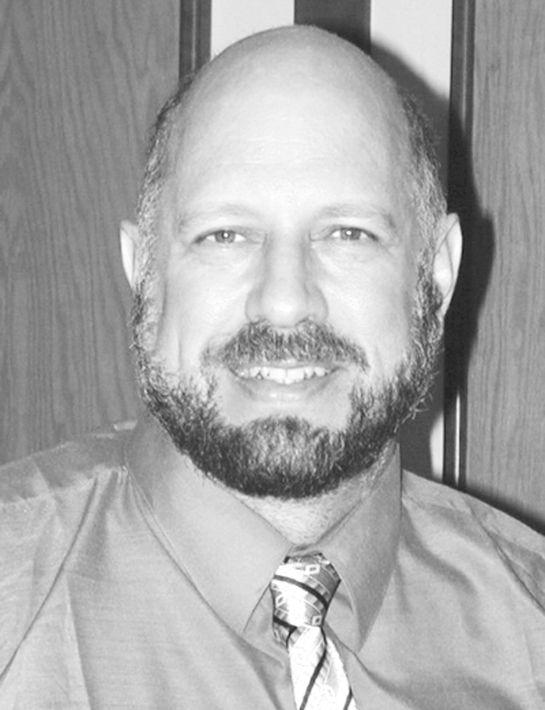电子书之父 迈克尔·斯特恩·哈特

对于迈克尔·斯特恩·哈特(1947~2011)这个人,你可能还不太熟悉。但是在电子界,他可是个举足轻重的人物。早在互联网普及之前,迈克尔·斯特恩·哈特就发起了“古登堡计划”,让人们经由计算机获得免费的电子书籍,可谓当之无愧的”电子书之父“。在自己的个人网页上,他写道:“如果你昨天所做的事情在今天看来依旧很了不起,那么你为明天设定的目标仍然不够宏伟。”(If what you did yesterday still seems great today, then your goals for tomorrow are not big enough.)哈特的远见卓识、不懈努力和坚定信念使电子书走入了大众的日常生活,也让扫除文盲和建立信息共享成为现实。下文就让我们走近迈克尔·斯特恩·哈特,了解这个用电子科技造福世人的人。
Michael Stern Hart was a burly1 rebel whose vision of a literate society led him to pioneer the electronic book decades before the spread of the Internet.
Hart was a freshman at the University of Illinois in 1971 when he was granted free access to the campus enormous mainframe computer2. He was uncertain how to use the valuable computer time until inspiration struck in the form of a reproduction of the Declaration of Independence that had been stuffed in his grocery bag as part of a Fourth of July promotion.
He keyed the historic text into the computer system, which linked 100 users at elite institutions such as Harvard, UCLA and the Department of Defense. It was downloaded by six members of this pre-Internet network, which was encouragement enough for Hart to continue.
He transmitted the Bill of Rights, the Constitution, the Bible and the works of Shakespeare. Forty years later, Project Gutenberg, named after the inventor of the Gutenberg printing press3, is one of the oldest online collections of literature, offering more than 33,000 free books in 60 languages. The vast majority are public domain, and all are digitized by volunteers scattered around the globe.
Hart was “an ardent technologist and futurist,” said Newby, a University of Alaska computer scientist. Long before the invention of personal computers and electronic readers, “he predicted that information contained in books and other media would surround us and be freely available.”
Others compared him to publishing pioneers such as Barney Rosset4, who championed intellectual freedom through Grove Press, which published controversial authors such as D. H. Lawrence5 and Henry Miller6. “What Barney Rosset, legendary founder of Grove Press, was to the printed book, Michael Hart was for the digital book: animated by an unremitting7 vision, idiosyncratic8 but immensely capable,” independent publisher Richard E. Nash said.
A self-described “cyber-hippie,” Hart was born in Tacoma, Wash., on March 8, 1947. His father was a Shakespeare scholar and his mother a mathematician.
Before going to college, he was a street musician in San Francisco and served a stint9 in the Army. He studied briefly at Dartmouth College before entering the University of Illinois at Urbana-Champaign in 1971. An obstreperous10 student who enjoyed challenging his professors, he graduated in two years with the highest grades.
To support himself and Project Gutenberg, he held a variety of odd jobs, including installing and repairing hi-fi stereos. His enthusiasm for the future of electronic publishing won him a non-paying appointment at Illinois Benedictine College, which provided him standing to solicit11 donations for his literacy project.
He rarely collected a salary from Project Gutenberg, according to Newby, who described Hart in an online tribute as “frugal12 to a fault13.”
“He used home remedies rather than seeing doctors. He fixed his own house and car. He built many computers, stereos and other gear, often from discarded components,” Newby wrote.
He also was a skillful garage sale14 scavenger15, whose house, according to a friend, was “a cross16 between a trash heap and a museum.”
Project Gutenberg grew slowly during its first 18 years. By August 1989 it had completed its 10th e-book, the King James translation of the Bible. A few years later, he typed in Lewis Carrolls Alices Adventures in Wonderland, which brought an epiphany17. He was talking to a friend on the telephone when her 11-year-old invited some friends over to read Alice on their computer. When they all tried to squeeze in front of the monitor on one chair, it broke into pieces and they crashed to the floor. But they wanted to keep reading.
When Hart heard about the incident, “the light went on in my head.” He began concentrating on converting literary texts to e-books, convinced that the future of literature was electronic. From that day forward, “any time anyone owed me a favor,” he recalled in a 1996 article in the Fort Worth Star-Telegram, “it was, ‘Here, type in some Hamlet.”
The online collection grew exponentially over the next two decades, fulfilling an expansive range of reading tastes. The most-read book is The Kama Sutra of Vatsyayana with more than 25,000 downloads, followed by The Adventures of Sherlock Holmes, with more than 18,000 downloads. Project Gutenberg also releases collections on free CDs and DVDs.
In 1998, Wired magazine named Hart to its “Wired 25,” a list of people around the world who were “actively, even hyperactively, inventing tomorrow.”
Hart had his critics. He was often disparaged18 by academics, who complained of typographical and other errors in Project Gutenberg books. He was not beloved in the traditional publishing world, which he often attacked for profiting on the works of long-dead writers. He disapproved of U.S. copyright laws, which keep popular works out of the public domain for decades after an author has died.
Hart dismissed his critics attacks.
“Im not doing this to make the academic community happy,” he told the Chicago Tribune in 1999. He aimed to serve the masses. “I am a revolutionary in this neo-industrial revolution. Thats why they have trouble with me19. How can anyone be troubled by free information?”
迈克尔·斯特恩·哈特身材魁梧,是个突破社会常规的叛逆者,他在头脑中构建了一个全民都能读书识字的社会,这个想法引领他早在互联网普及数十年之前就开启了电子书的先河。
1971年,哈特在伊利诺伊大学读一年级,作为新生的他获得了该校大型计算机的免费使用权。起初,他并不清楚该如何利用这一使用计算机的宝贵时机,直到有一天,一份翻印的《独立宣言》忽然给了他灵感。这份翻印文件是商家在独立纪念日搞促销时发放的,被他塞在了购物袋里。
他将这部具有重大历史意义的文本键入计算机系统,这一系统连接了包括哈佛大学、加州大学洛杉矶分校、国防部等精英机构的一百名用户。后来,该网络系统(互联网的前身)上有六名用户下载了这本书,这已足以鼓舞哈特继续坚持下去了。
他又陆续上传了《人权法案》、《宪法》、《圣经》以及莎士比亚的作品。40年后,以古登堡印刷机发明人命名的“古登堡计划”成为历史最悠久的文献收集网站之一,该网站可供免费下载的书籍达33,000多部,涵盖60种语言。绝大多数书籍都属于公有领域,全部由遍布世界各地的志愿者进行数字化处理。
阿拉斯加大学计算机科学家纽比说,哈特是“一位热情的技术专家和未来学家”。远在个人电脑和电子阅读器发明之前,“他就预测,书籍和其他媒体中所含的知识将会与我们形影不离,并且可免费获得”。
还有人把哈特与巴尼·罗塞特等出版业先驱相提并论。为了捍卫知识分子的自由,巴尼·罗塞特创办了格罗夫出版社,出版了诸如D. H. 劳伦斯、亨利·米勒等有争议性作家的作品。“迈克尔·哈特之于电子书,就像格罗夫出版社的传奇式创始人巴尼·罗塞特之于纸质书:在坚定理想的驱使下有所作为,特立独行,却又无所不能。”独立出版商理查德·E·纳什如此说道。
哈特自称“网络嬉皮士”。他1947年3月8日出生于华盛顿州的塔科马,父亲是一位从事莎士比亚研究的学者,母亲是一位数学家。
上大学前,哈特在旧金山做过街头音乐人,也曾在陆军服过一段时间的兵役。1971年,在达特茅斯学院短暂就读之后,他进入伊利诺伊大学厄巴纳——尚佩恩分校学习。那时的哈特是一个不服管束的学生,喜欢挑战教授的权威,两年后他以最优异的成绩从这里毕业。
为了维持生计和“古登堡计划”的正常运行,他打过五花八门的零工,包括安装和修理高保真立体声音响设备。他对电子出版的未来所抱的热情为他在伊利诺伊本笃会学院谋得了一个没有薪水的职位,这个职位使他能够以合适的身份为自己的扫盲计划争取捐助。
据纽比称,哈特几乎从来没有从“古登堡计划”中拿到过报酬。纽比在网上发表的一篇悼词中描述,哈特“节俭得都过了头”。
“他用家庭秘方治病而不是去看医生。他自己修缮房子,修理汽车。他组装了许多电脑、立体声音响和其他设备,组装的原件往往用的是废弃的零部件。”纽比写道。
他还是一位收藏旧货的行家里手,据他的一位朋友说,他的房子简直就是“垃圾堆和博物馆的结合体”。
“古登堡计划”在前18年里的发展较为缓慢。1989年8月,它完成了其第十部电子书——詹姆士国王钦定版《圣经》。几年之后,哈特录入了路易斯·卡罗尔的《爱丽丝梦游仙境》,这本书给他带来了醍醐灌顶的感觉。有一次他和朋友正在通电话,此时朋友11岁大的孩子邀请了一些朋友在家里的电脑上阅读《爱丽丝》。孩子们争先恐后地想坐到屏幕前的一张椅子上,结果椅子一下子散了架,他们摔到了地板上。但孩子们仍想接着读下去。
当哈特听说此事后,顿感“脑中灵光一现”。他开始专注于把文学作品的文本转录成电子书,深信未来文学将走向电子化。从那以后,“每当有人欠我人情的时候,”他在《沃思堡明星电讯报》1999年的一篇文章中回忆道,“我就说,‘那就来帮我录入一段《哈姆雷特》吧。”
在接下来的20年里,网络电子书的数量呈指数级增长,满足了日益扩大的各类阅读品味的需求。其中被阅读次数最多的书是《爱之经》,下载量超过2.5万次;其次是《福尔摩斯探案集》,下载量超过1.8万次。此外“古登堡计划”还发行了免费的CD版和DVD版的电子书合集。
1998年,《连线》杂志将哈特列入其“连线25人”排行榜,进入排行榜的人来自世界各地,这些人都“积极甚至过度积极地创造着未来”。
哈特也曾遭到过批评。他常常受到专业学者的贬损,他们抱怨“古登堡计划”推出的电子书存在打字和其他方面的错误。传统出版业界也不喜欢他,因为他经常抨击他们靠早已作古的作家的作品营利。他不赞同美国的版权法,因为这些法律使得一些受欢迎的作品在其作者死后几十年内仍无法进入公有领域。
哈特并没有理会那些批评的声音。
1999年,他对《芝加哥论坛报》说:“我所做的并不是为了让学术界感到高兴。”他的宗旨是服务大众。“我是这次新工业革命中的一名革命者,这才是他们与我为敌的原因。除此之外,谁会与免费信息过不去呢?”
注释
1. burly adj. 魁梧的,强壮结实的
2. mainframe computer:[计]主计算机;大型计算机
3. inventor of the Gutenberg printing press:古登堡印刷机的发明人,即约翰内斯·古登堡(Johannes Gutenberg, 1398~1468),德国人,西方活字印刷术的发明人。他的发明导致了一次媒界革命,迅速地推动了西方科学和社会的发展。
4. Barney Rosset:巴尼·罗塞特(1922~2012),生于美国芝加哥,是格罗夫出版社创办人,也是《查泰莱夫人的情人》(Lady Chatterleys Lover)、《北回归线》(Tropic of Cancer)等禁书的出版人。
5. D. H. Lawrence:D. H. 劳伦斯(1885~1930),英国作家,是20世纪英语文学中最重要的人物之一,也是最具争议性的作家之一。主要成就包括小说、诗歌、戏剧、散文、游记和书信。代表作品有《儿子与情人》(Sons and Lovers)、《恋爱中的女人》(Women in Love)、《查泰莱夫人的情人》等。
6. Henry Miller:亨利·米勒(1891~1980),美国“垮掉派”作家,是20世纪美国乃至世界最重要的作家之一,同时也是最富有个性又极具争议的文学大师。代表作品有《北回归线》、《黑色的春天》(Black Spring)、《南回归线》(Tropic of Capricorn)等。
7. unremitting adj. 不松懈的
8. idiosyncratic adj. (行为、习性、爱好等)个人特有的;独特的
9. stint n. (在某地的)工作时间
10. obstreperous adj. 不服约束的,不守秩序的
11. solicit vt. 请求给予
12. frugal adj. 节俭的;花钱少的
13. to a fault:过分地,过头地
14. garage sale:(在宅前尤其是车库里进行的)旧货出售
15. scavenger n. 捡垃圾者,拾破烂者
16. cross n. 混合物
17. epiphany n. 对现实真谛的顿悟或洞察
18. disparage vt. 蔑视,贬损
19. have trouble with sb.:和某人有矛盾

